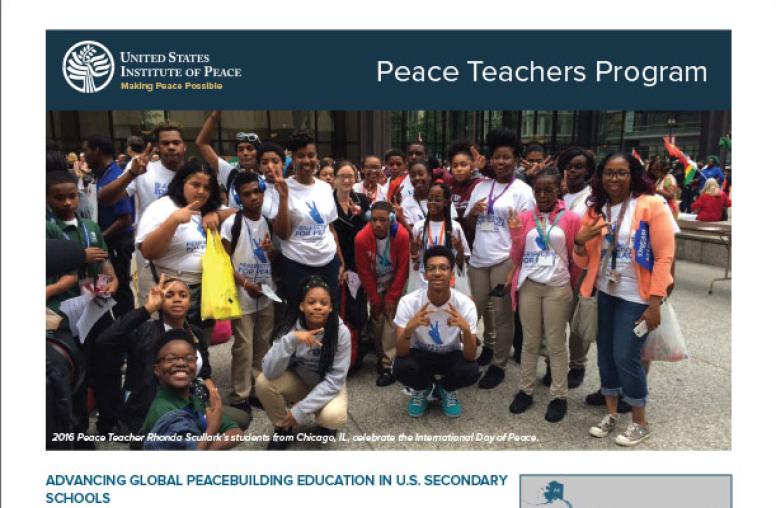Peacebuilding in Community Colleges
THE USIP BOOKSTORE IS TEMPORARILY UNAVAILABLE
In Peacebuilding in Community Colleges: A Teaching Resource, David J. Smith underscores the importance of community colleges in strengthening global education and teaching conflict resolution skills. Enlisting contributions by twenty-three community college and peacebuilding professionals, Smith has created a first-of-its-kind volume for faculty and administrators seeking to develop innovative and engaging peacebuilding and conflict resolution initiatives.
Through case studies, how-to’s, sample syllabi and materials, and inspiring anecdotes, contributors draw on learner-centered strategies, experiential learning, and interdisciplinary relationships to teach practical skills and strengthen global connections.
Offering lifelong learning to over 13 million students at nearly 1,200 schools, community colleges in the United States attract a student body that is remarkably diverse: economically, ethnically, and culturally. They provide students with skills and foundational knowledge upon which successful professional careers and rewarding personal engagement can be built. This identity makes community colleges uniquely suited to teach global awareness and community building. Yet the development of peacebuilding and conflict resolution curricula is still a relatively new effort at these institutions.
The contributors to this volume are sensitive to the complexity of teaching a community college student body that often closely reflects the diversity of the local population. They discuss both the challenges and opportunities presented by different learning communities—including, for example, significant military, diaspora, and cultural populations among their student bodies.
Providing a common frame of analysis, Smith discusses important trends and future challenges for community colleges teaching peacebuilding, such as the transferability of credits to four-year institutions and the need to establish skills-based programs that can lead to defined and better employment opportunities. This volume is certain to be an invaluable resource in the field of peacebuilding education.
About the Editor
David J. Smith is a senior manager for educational outreach in USIP's Global Peacebuilding Center and a conflict resolution practitioner. A Fulbright Scholar, Smith taught at the University of Tartu (Estonia). He was also an associate professor at Harford Community College. In addition, Smith has taught at Goucher College, George Mason University, and Georgetown University. He currently serves as chair of the Rockville, Maryland Human Rights Commission.
Contributors
Vasiliki Anastasakos • Jennifer Batton • Scott Branks del Llano • John Brenner • Isabelle Daoust • Karen Davis • Jeff Dykhuizen • Cindy Epperson • Kent A. Farnsworth • Paul C. Forage • Jennifer Haydel • Abbie Jenks • Joyce Kaufman • John Paul Lederach • Susan Lohwater • George A. Lopez • Kara Paige • Greg Rabb • Jane Rosecrans • Michelle Ronayne • David J. Smith • Barbara Thorngren • Tu Van Trieu • Sarah Zale



